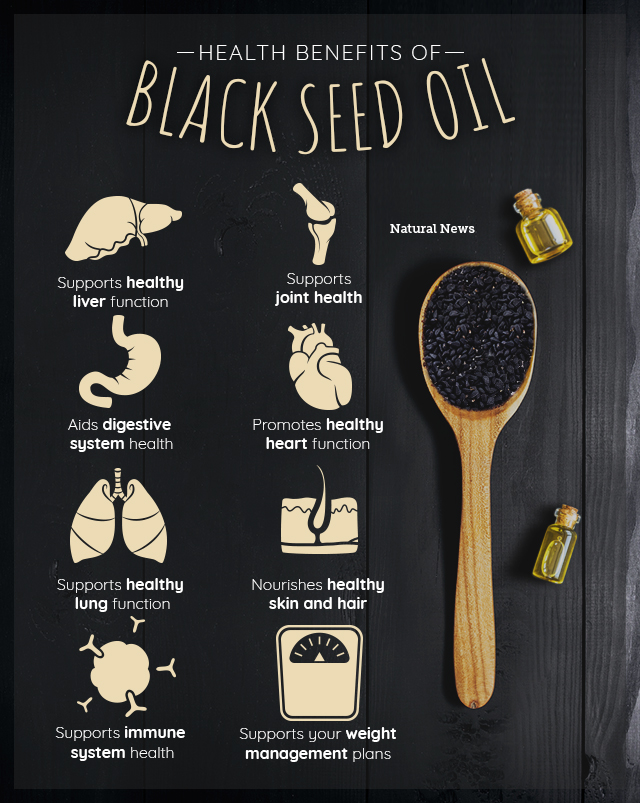The unmatched health benefits of black seed oil
05/23/2018 / By Derek Henry

As more and more natural remedies come along, it becomes glaringly obvious that nature has the remedy to nearly everything that ails us. Whether we use these remedies properly in conjunction with a healthy and holistic lifestyle is up to us, but there is very little debate that plants have been healing mankind for thousands of years. This would be second nature to us had the pharmaceutical industry not done an excellent job of brainwashing us into thinking men with white coats in sterile labs held all the answers.
One of the newest discoveries in North America, black seed oil, has enjoyed a surge of popularity but it is still relatively unknown in the health industry, and that’s unfortunate because its overall healing properties are nothing short of astounding.
What is black seed oil?
Black seed oil, also known as black cumin, black onion seeds. black coriander, and black caraway, is derived from a small flowering shrub known as Nigella sativa that grows in Southwestern Asia, the Mediterranean, and Africa. This shrub grows tiny black seeds that have been used for remedies for thousands of years, with archaeologists even finding them in King Tut’s tomb which only further signifies their importance. Cleopatra also reportedly used the oil for her beautiful hair and skin and Hippocrates liked using it for digestive issues.
So why has black seed oil attracted so many people including royalty to use it over thousands of years? You’re about to find out.
The health benefits of black seed oil
Many of black seed oil’s benefits have been confirmed in biomedical text, and has 656 published, peer-reviewed studies referencing it since 1964. There has been over 1600 natural compounds identified in black seed oil with a wide range of health benefits, including:*
- Supports healthy liver function
- Aids digestive system health
- Supports healthy lung function
- Supports immune system health
- Promotes healthy heart function
- Supports joint health
- Supports commonsense weight management plans
- Nourishes healthy skin and hair

How does one humble seed generate so much support in so many different areas? Much of it can be attributed to it’s antioxidant profile, with the active agents of thymoquinone, thymohydroquinone, nigellone, and thymol being just a few of the plant compounds that provide us with so many health benefits. Black seed oil also contains a high level of amino acids including linolenic, oleic, palmitic, and stearic acid. It also contains a plant saponin known as melathin, as well as selenium, iron, calcium, and potassium.
For information on other powerful herbs, visit Herbs.news.
How to use black seed oil
Some traditional food applications of black seed oil include adding it to soups, curries, stir frys, or grinding and mixing them with other seasonings to use on a variety of dishes.
To ensure the most medicinal benefits, taking it in straight supplemental form is often the easiest and most guaranteed way to enjoy it’s healing power. You could also mix it in with raw honey or fresh juice, to make it more palatable.
To get a pure, potent source of black seed oil, get the Health Ranger’s Black Cumin Seed Oil, so you can tap into this historically used herb, and enjoy the many health benefits that come with it.
Sources include:
Submit a correction >>
Tagged Under:
This article may contain statements that reflect the opinion of the author
RECENT NEWS & ARTICLES
COPYRIGHT © 2017 SUPER FOODS NEWS





















